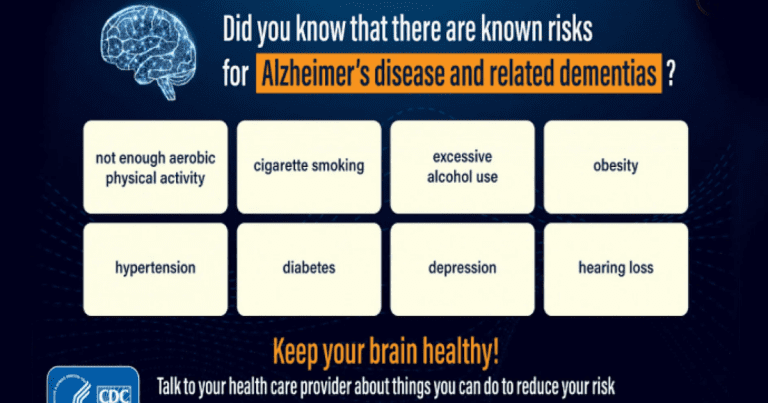As Floridians make their New Year’s resolutions, the Alzheimer’s Association asks them to consider developing good habits that improve brain health.
A updated analysis released in August in the medical journal The Lancet cites growing evidence that addressing 14 risk factors would delay or prevent nearly half of dementia cases.
These “modifiable” factors are obesity, unmanaged diabetes, high blood pressure, physical inactivity, lack of education, hearing loss, smoking, depression, excessive alcohol consumption, injuries brain damage, air pollution, social isolation, vision loss and high cholesterol.
Recognizing the importance of addressing these risk factors, the Alzheimer’s Association promotes “10 Healthy Habits for Your Brain.”
“No matter where you are in your life, it’s never too early or too late to adopt healthy habits for your brain,” said Jody Streussnig, senior program manager for the Polk County Association.
“We talk about the 10 healthy habits for your brain,” she said. “So, first and foremost, challenging your mind is extremely important. We want people to be curious and put their brains to work to try something new or difficult for you.”
Other healthy habits include staying in school, exercising, protecting your head from injury, not smoking, eating well, maintaining a healthy weight, sleeping well, and taking care of yourself. high blood pressure or diabetes.
Lancet researchers make these recommendations for society as a whole to reduce the risk of dementia:
- Ensure that good quality education is accessible to all and encourage cognitively stimulating activities in midlife to protect cognition.
- Making hearing aids accessible to people with hearing loss and reducing exposure to harmful noise to reduce hearing loss.
- Treat depression effectively.
- Encourage the use of helmets and head protection in contact sports and cycling.
- Encourage exercise, as people who play sports and exercise are less likely to develop dementia.
- Reduce smoking through education, price controls and prevention in public, and make smoking cessation advice accessible.
- Prevent or reduce hypertension and maintain systolic blood pressure at 130 mm Hg or less after age 40.
- Detect and treat high LDL cholesterol in midlife.
- Maintain a healthy weight and treat obesity as early as possible, which also helps prevent diabetes.
- Reduce high alcohol consumption through price controls and increased awareness of the levels and risks of excessive alcohol consumption.
- Prioritize age-friendly community environments and housing and reduce social isolation by making it easier to participate in activities and live with others.
- Make vision loss screening and treatment accessible to everyone.
- Reduce exposure to air pollution.
Copyright 2025 Central Florida Public Media


